Motion and Stability: Forces and Interactions
-
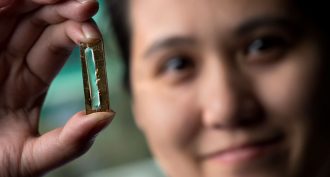 Materials Science
Materials ScienceNanowires could lead to super-long-lived battery
Scientists have long been looking for ways to make rechargeable batteries that last forever. They now may be close. Their solution: gel-dipped nanowires.
By Lela Nargi -
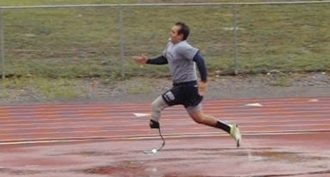 Health & Medicine
Health & MedicineWhy Paralympic sprinters have trouble with curves
Whether an artificial leg is on the right or left side of the body may affect how fast runners can take a turn.
-
 Physics
PhysicsExplainer: What are gravitational waves?
Albert Einstein had predicted that large catastrophes, like colliding black holes, should produce tiny ripples in the fabric of space. In 2016, scientists reported finally detecting them
By Christopher Crockett and Andrew Grant -
 Physics
PhysicsBoom! Sounding out the enemy
Armistice Day marked the end of the Great War. But what arguably won the war was acoustics — the science of sound. It allowed Allied troops to home in on and rout the enemy.
By Ron Cowen -
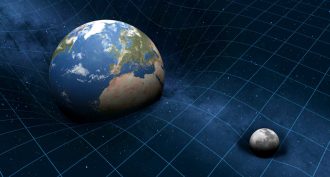 Physics
PhysicsEinstein taught us: It’s all ‘relative’
One hundred years ago, a German physicist shared some math he had been working on. In short order, his theory of relativity would revise forever how people viewed the universe.
-
 Brain
BrainMales and females respond to head hits differently
Men and women are playing sports equally — and getting concussions in comparable numbers. But how their brains respond may differ greatly.
-
 Brain
BrainSoccer: Watch out for collisions!
Scientists discover that concussions among high school soccer players stem more from aggressive contact between players than from heading the ball.
-
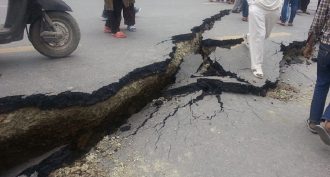 Earth
EarthNepal earthquake offers hints of worse to come
The magnitude 7.8 earthquake that crumbled much of Nepal’s capital city could be overshadowed by larger future earthquakes along the Himalayas, scientists say.
-
 Space
SpaceScientists Say: Gravitational lens
A gravitational lens is an effect that occurs when a massive object lies between a viewer and something further away. The massive object’s gravity bends light arriving from the more distant object.
-
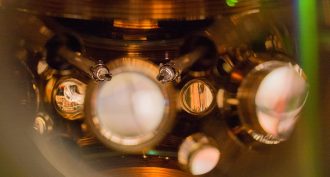 Physics
PhysicsNews Brief: As timely as it gets
A newly modified atomic clock won’t lose or gain a second for 15 billion years. This timepiece is about three times more precise than an earlier version.
By Andrew Grant -
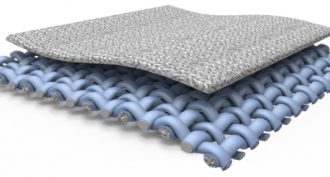 Tech
Tech‘Smart’ clothes generate electricity
Scientists in South Korea have developed a fabric that captures energy from its wearer’s motions and turns it into electricity.
-
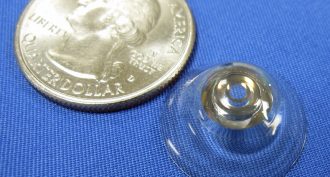 Health & Medicine
Health & MedicineVision-ary high tech
New devices are being developed to improve, restore or preserve the vision of people with eye diseases, such as glaucoma and macular degeneration. One device is a telescopic contact lens than can be zoomed with a wink.
By Sid Perkins